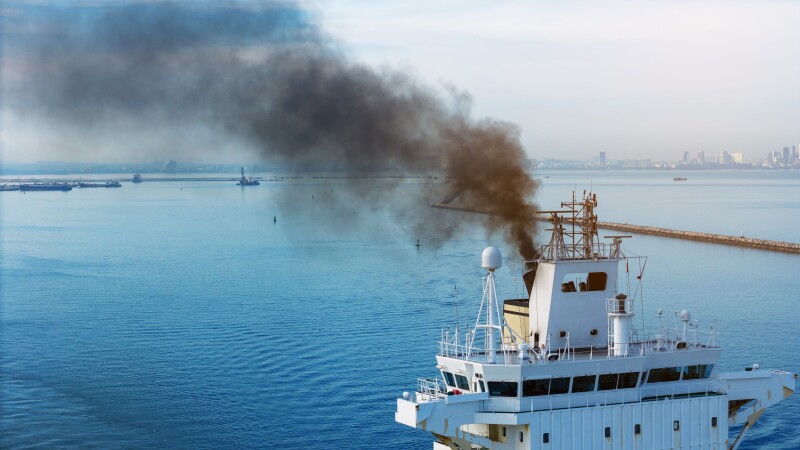This article is the second in a series for commercial fishermen about marine carbon dioxide removal (mCDR). mCDR is a set of experimental techniques that could someday play a major role in combating climate change by accelerating the ocean’s uptake and storage of heat-trapping carbon dioxide pollution from the atmosphere.
In this article, we survey contemporary field-wide planning initiatives focused on supporting mCDR research and decision making. Each of these initiatives represents a potential opportunity for the fishing community to strategically engage in shaping the future of mCDR. Then, we describe early efforts to consider interactions between fisheries and mCDR. Finally, we invite fishermen and their representatives to apply to serve on a newly formed Commercial Fishing Industry Thought Leadership Forum on mCDR.
Readers can learn more by attending a May 28 webinar on “Marine Carbon Dioxide Removal: What Fishermen Need to Know”, hosted by the Fishery Friendly Climate Action Campaign, Responsible Offshore Development Alliance, and other partners.
Shaping the future of mCDR
At least half a dozen road-mapping and visioning processes are taking place this year to outline future trajectories for mCDR in the U.S. and beyond. These reflect at once the infancy and the high level of excitement and ambition surrounding the field of mCDR.
The nonprofit Ocean Visions is sponsoring three of these initiatives. Its Building a Shared Strategy to Advance mCDR Pathways to Climate-Relevant Solutions is outlining a plan to equip decision makers with the knowledge they need to make decisions about the feasibility and safety of commercial-scale mCDR deployment by 2030. Its Phytoplankton Carbon Solutions project is compiling a research, development, and demonstration agenda to guide philanthropic funding in phytoplankton-based mCDR. Its Environmental Impact Assessment Framework for Marine Carbon Dioxide Removal project is developing a comprehensive standardized framework to help project leaders, stakeholders, and permitting entities assess both the risks and benefits of mCDR interventions.
Other nongovernmental actors, too, are involved in foundational work around mCDR design and governance. The National Academies of Sciences, Engineering, and Medicine recently recruited members for a steering committee to update its “Research Strategy for Ocean-Based Carbon Dioxide Removal and Sequestration.” Columbia University’s Sabin Center for Climate Change Law is planning a symposium this September on “Navigating Marine Carbon Dioxide Removal: From Science to Regulation,” which will be followed by an mCDR-focused issue of the Sea Grant Law and Policy Journal. The nonprofit Global Ocean Health is putting together resources for a two-year initiative to design and vet a purpose-built resource management framework for marine carbon dioxide removal, led by tribes and waterfront communities and modeled after some of the adaptive management principles commonly used in fisheries.
Who’s looking out for fisheries?
Fishing businesses and the fisheries science and management community are following close behind. With an eye towards understanding potential impacts to fisheries and ensuring that mCDR research and deployment are done responsibly, these experts and stakeholders are tracking mCDR as it develops and stepping up their engagement.
In October 2024, the International Council for the Exploration of the Seas (ICES) hosted a workshop on “Assessing/Anticipating the Impact of Marine Carbon Dioxide Removal on Fisheries and Aquaculture Species and Management.” Initiated and led by staff at NOAA Fisheries and attended by fishermen from Europe and eastern North America, the workshop sought to assess what is and isn’t known about potential risks and benefits from mCDR to marine species and ecosystems. A smaller group of scientists and fishing industry leaders from both sides of the Atlantic convened after the workshop to plan a set of academic publications exploring themes related to the intersection of fisheries and mCDR, which will be published late this year or in early 2026.
Fisheries management councils, too, are starting to recognize mCDR as a potential driver of change in fisheries ecosystems. For example, the New England and Mid-Atlantic Fisheries Management Councils included a section on mCDR in their January 2025 report on “Non-Fishing Impacts to Essential Fish Habitat In the Northeastern United States.”
Meanwhile, fishing industry organizations are leading their own efforts to strengthen fishermen’s understanding of mCDR and ensure that fishing communities have a prominent role in guiding this field as it matures.
In early 2025, the Fishery Friendly Climate Action Campaign and Responsible Offshore Development Alliance led seventeen virtual small-group roundtables for fishermen in the Northeast, Alaska, and West Coast. In the coming months, these partners will work with collaborators from the Alaska Ocean Acidification Network, California Current Acidification Network, and Northeast Coastal Acidification Network to produce a set of guidance memos, grounded in input from these roundtables, that outline key principles for: (a) fishery-sensitive mCDR governance; (b) involvement of fishermen as co-producers of knowledge in an mCDR context; and (c) best practices for mCDR project leads and permitting agencies for engaging the fishing community.
How to get involved
Although mCDR methods are not yet proven at scale, now is the time to start building the fishing industry’s capacity for engagement. By getting involved at this early stage, the fishing community has a chance to steer the field of mCDR towards a responsible and fishery-sensitive development pathway. If we sit on the sidelines during these formative stages, we may never get a chance to enter the game.
The Fishery Friendly Climate Action Campaign invites fishermen and their representatives to apply by August 15 to serve on a Commercial Fishing Industry Thought Leadership Forum on mCDR. In addition to acting as a sounding board for the finalization of the three guidance memos described earlier, this forum will provide recommendations related to advancing literacy among the fishing community on mCDR and may interface with third-party strategy processes where a fishing industry perspective is needed, such as those described in the section of this article on “Shaping the future of mCDR”.
Fishermen can learn more by visiting the Fishery Friendly Climate Action Campaign’s mCDR information resources page and attending a May 28 webinar on “Marine Carbon Dioxide Removal: What Fishermen Need to Know”.




.png.author-image.300x300.png)


